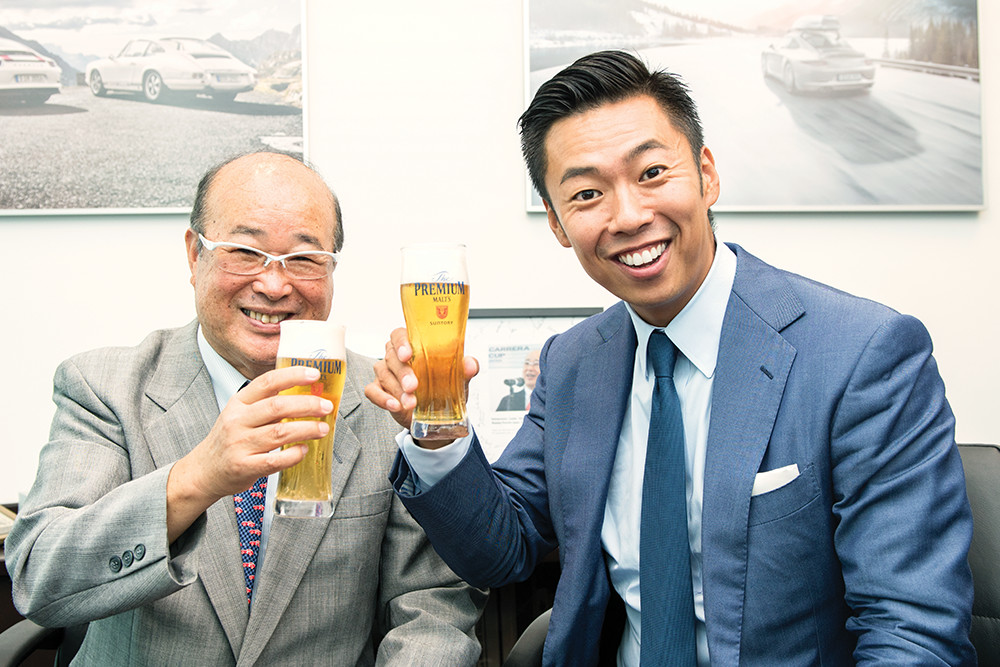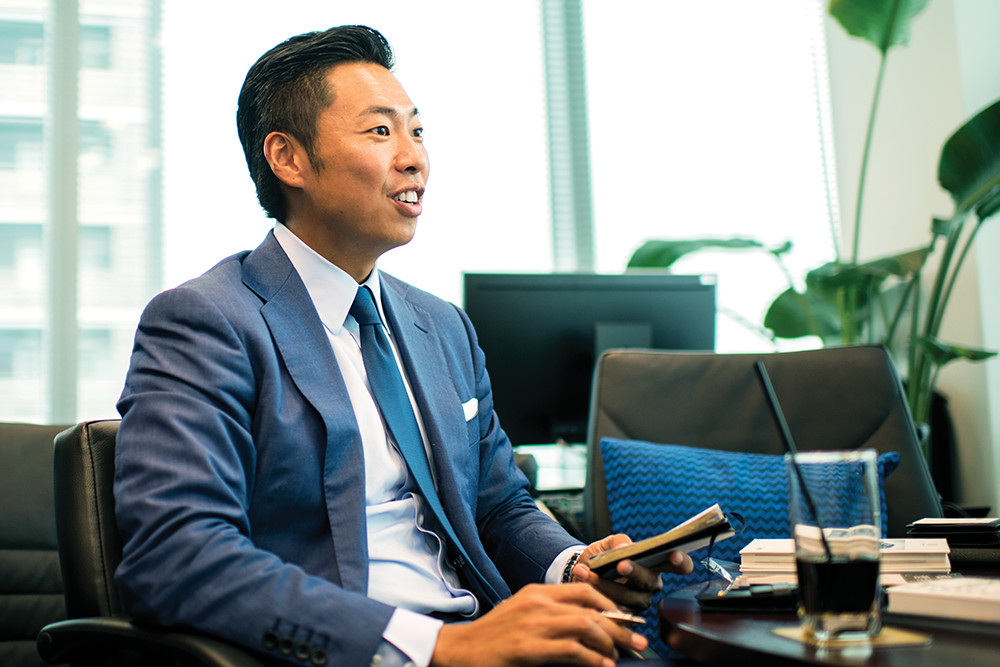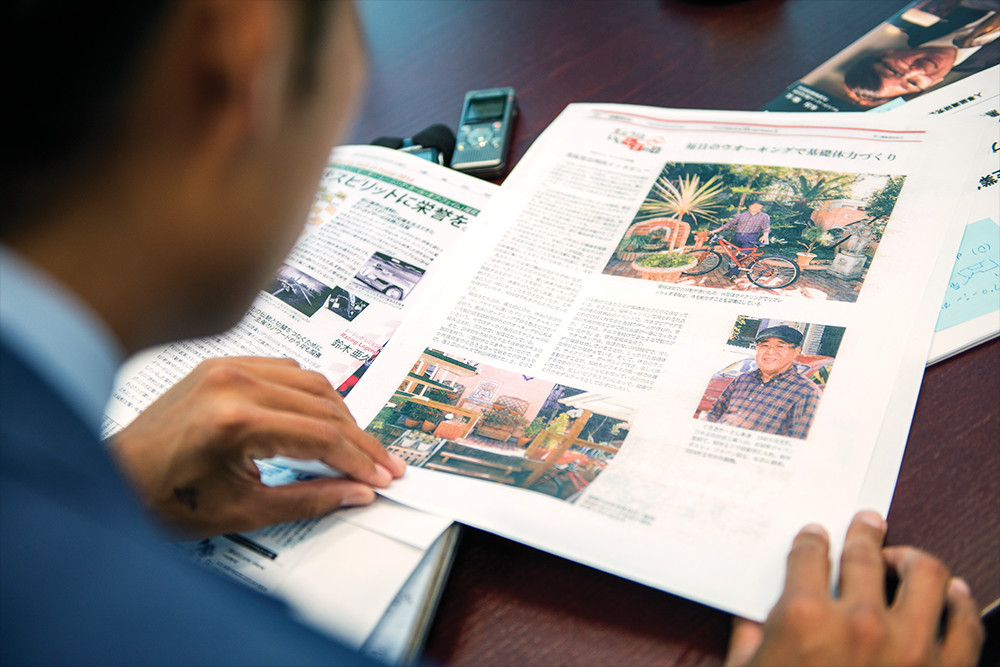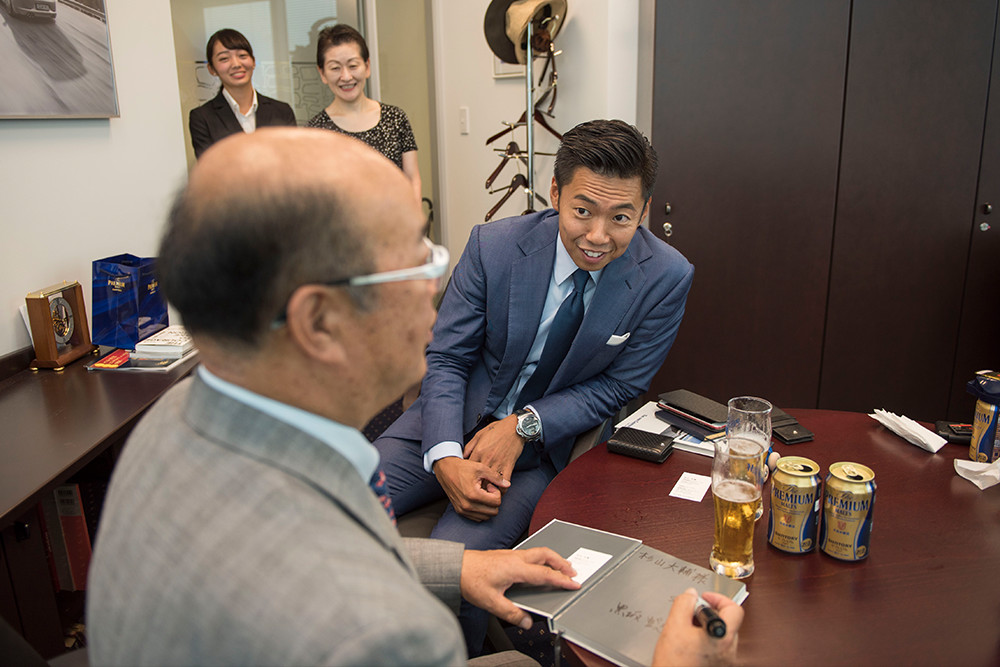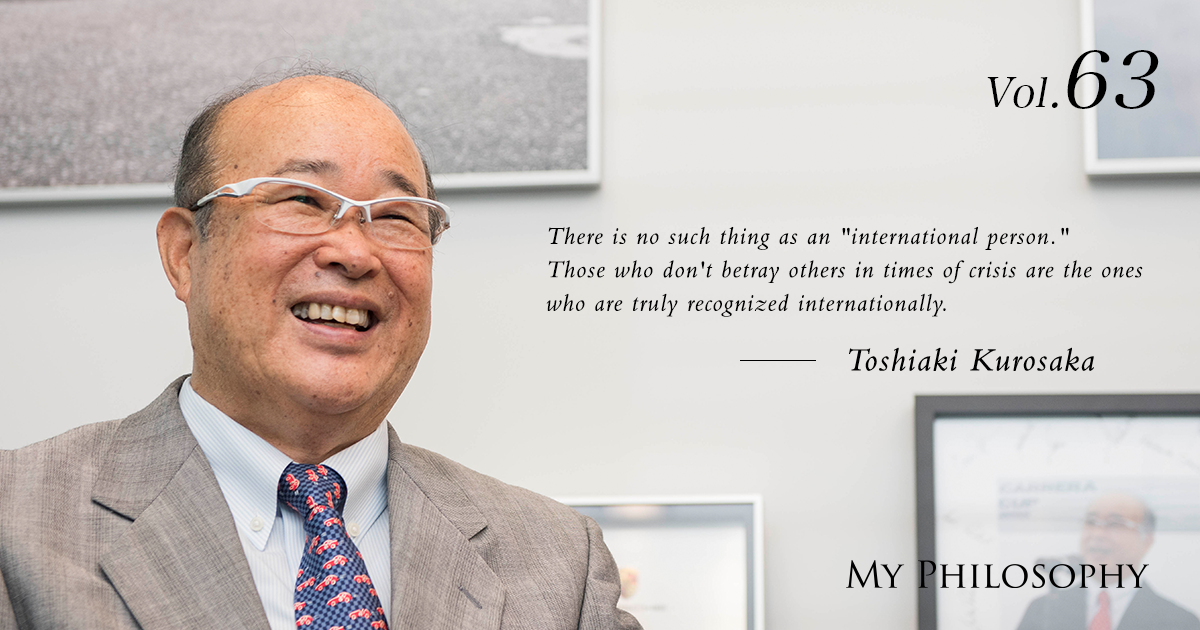
Toshiaki Kurosaka, founded Porsche Japan and has led Porsche in the Japanese market for 33 years, including the Mitsuwa Motors era. Currently, he is the only local subsidiary president in the world. We asked him to reflect on his 33 years of experience in Porsche Japan.
Profile
Vol.63 Toshiaki Kurosaka
Chairman of Porsche Japan K.K.
Born in Kanagawa Prefecture in 1946, Mr. Kurosaka graduated from the Faculty of Economics at Keio University. In 1971, he joined Honda Motor Co., Ltd. After working there for 13 years, he moved to BMW Japan Corp., where he thoroughly studied marketing theories and sales strategies. In 1985, he joined Mitsuwa Motors Corp., where he held various positions, including Director and Head of the Agency Headquarters, and Managing Director. He developed a unique sales method that combined Japanese-style management with Western business thinking, offering meticulous support to dealers and creating a sense of status. Under his leadership, he spearheaded a major reform through detailed marketing strategies, achieving significant success. In 1995, he was appointed President and Representative Director of Porsche Japan K.K. At the time he joined Mitsuwa Motors, Porsche's annual domestic sales were 400 units, but by 2007, this figure had risen to 4,200 units. In February 2014, he became Chairman of Porsche Japan K.K., a position he holds to this day.
*Titles and other information are as of the time of the interview (September 2017).
Sometimes Show Your Emotions
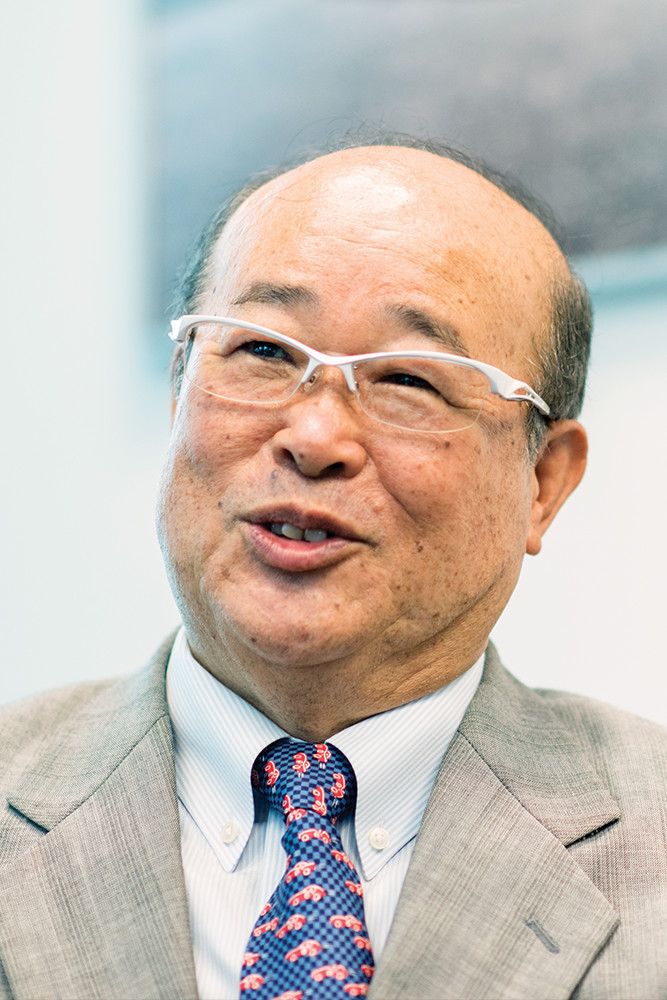
Three and a half years ago, due to some unfortunate circumstances, there was a management change at the headquarters, and as a result, I was told to step down as president. At that moment, I refused and fought back. Porsche Japan is a company I built. I created the entire organization and system, so I didn’t expect to be suddenly told to leave. The main candidate that the headquarters had arranged for through a German headhunter they hired on their own was young and fluent in English. However, this candidate had moved through an astonishing number of rotations, shifting from task to task and project to project every two to three years. The headhunter highly praised this as an excellent career path, but I candidly disagreed, saying, “In a small organization like ours, the organization cannot function unless you have someone who is willing to settle down and deeply engage with the work.” In response, the candidate turned red in the face and passionately retorted, “I don’t think so!”
The German temperament can be quite intense. However, I view getting angry as fundamentally a reflection of how seriously someone takes their work, and I interpret it positively.
Nurture, Don’t Fire
In foreign companies, a change in presidents typically occurs when business performance deteriorates. In this industry, I am one of the few who retired as president while still successful. One of my greatest prides after stepping down to the position of chairman is that, in the 30 years since the Mitsuwa Motors era, I never fired a single person. This is also part of the Honda philosophy.
Even if someone is highly capable, a company will never succeed if it is filled only with graduates from prestigious universities like the University of Tokyo. A company functions because of the diversity of its people. Everyone has flaws, right? Including myself, no one is perfect. That’s why I don’t fire anyone. People who have steadily built up their efforts possess a deep understanding of the company, its products, and its culture, and they excel at teamwork. Even when the business environment changes, it is much more efficient and effective to educate the existing staff than to bring in new people from outside and expect them to perform immediately.
Japan’s Unique Marketing Method Becomes the Global Standard
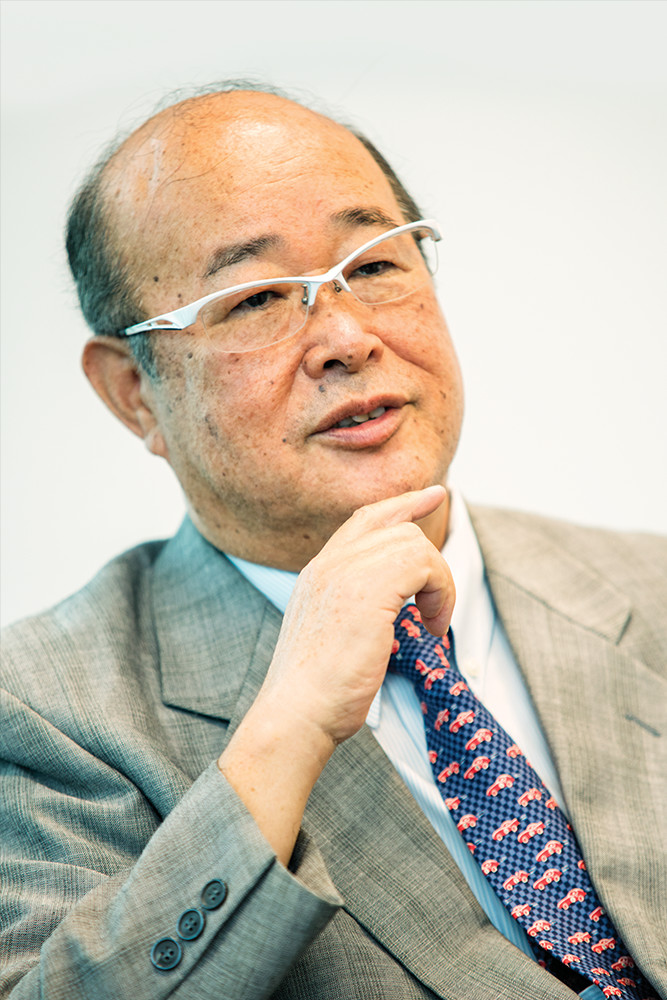
In Japan’s automotive industry, events are typically organized on Saturdays and Sundays. In Europe and the United States, such events are not held because people generally do not work on weekends. I was the first to organize systematic events in Japan. To maximize efficiency with minimal budget, I strategically mixed various media channels. Although the headquarters initially advised against doing what mass-production manufacturers were doing, a few years later, my approach became the worldwide standard.
The first show I organized as a gesture of appreciation to our customers was held at the Hotel Okura. In Japan, there are no roads where you can drive at 200 km/h, so even if you rent a racing circuit for a test drive event, at most, only 50 to 100 people will attend. Even if you hold such events 10 times a year, you can only gather around 500 people. However, if you host it at a hotel, you can have about 3,000 customers attend in a single day. Creating a luxurious event where people can dress up and bring their partners to a first-class hotel is part of our customer retention strategy. However, at such events, we would only sell around 20 or 30 cars. The costs of the show run into tens of millions of yen, so the headquarters doubted its effectiveness.
I also faced opposition regarding newspaper advertisements. Given that Porsche is a sports car, if its drivers were labeled as adult gangs, it would be the end. It was necessary to create a sense of status by ensuring our customers enjoyed first-class experiences and seeing the brand featured in top-tier media. With messages like “An executive’s space of liberation. After a day’s work, your time with Porsche begins when you head home,” we ran a full-page ad in the Asahi Shimbun at a cost of 30 million yen per ad, even though our annual profits were only around 100 million yen at the time. In Germany, this was deemed nonsensical, but it received a lot of positive feedback from customers, who said, “This is exactly what we wanted.” While the global management was struggling with declining sales, the Japanese market grew, becoming the third largest after the United States and Germany.
Never Betray Others
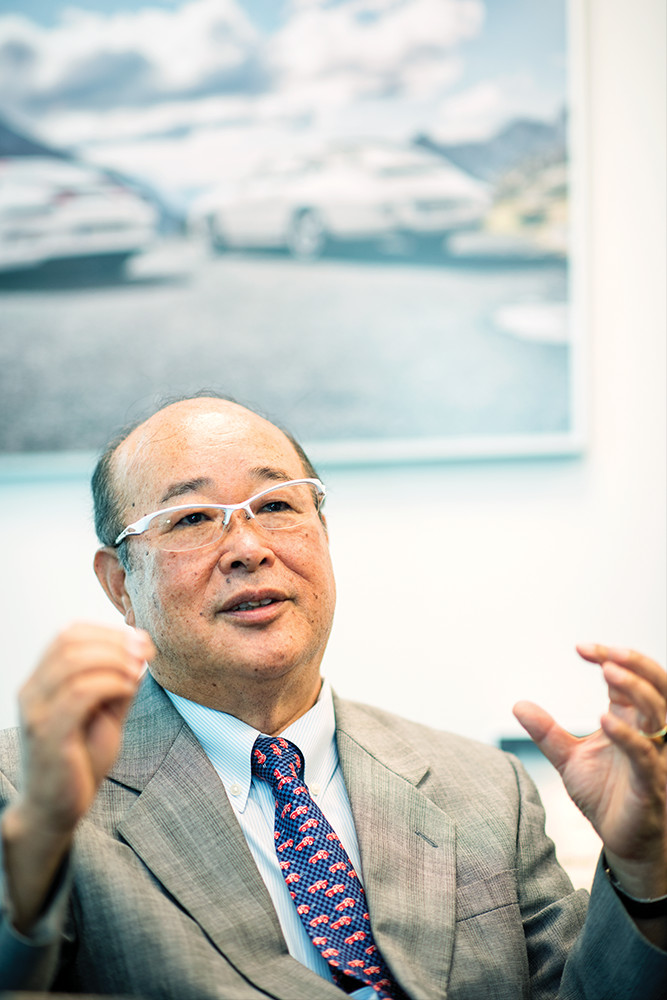
During the Mitsuwa Motors era, when the break-even point for the main factory was around 35,000 units, we undertook a major management reform and successfully lowered the break-even point to about 15,000 units without raising the sales price. As a result, Japan was the only market in the world where sales increased. However, because we had a large inventory during the model changeover period, when the new model was released, we slightly raised the price of the new car and significantly lowered the price of the older stock. As a result, it appeared to customers as if there were two different lineups. At a meeting, the headquarters president, Dr. Wiedeking, expressed his anger, saying, “We are trying to increase sales by cutting costs, so I absolutely won’t allow raising the price of new cars.” The German PR officer, the manager in charge of Japan, and everyone else present fell silent, and the atmosphere in the room froze. After a brief pause, I said, “Dr. Wiedeking, I explained everything about this pricing strategy to the export department, and if you don’t know, that’s your fault.” His furious expression softened, and he said, “Yes, that’s my fault.” At that moment, I realized that although he was younger than me, I could follow this person.
There were about three instances in Germany where I found myself in difficult situations. Even during those times, I acted with the belief of “never betraying others.” In one instance in Japan, there was trouble related to the construction site for the headquarters. Although the issue had been resolved, the company lawyer brought it up right after a board meeting at headquarters. The president pressed me, asking who approved it, but I didn’t reveal that it was the headquarters’ sales director and executive vice president. Instead, I said that I made the decision on my own, fully prepared to lose my job. This incident earned me the nickname “Samurai.”
What Japanese people lack is communication ability in such situations. It’s not good to remain silent or act out of self-preservation when cornered. In the end, there’s no such thing as an “international person.” Those who don’t betray others and act with dignity are the ones who are truly respected internationally.
Observing from the Chairman’s Perspective
My policy was not to increase the number of dealerships. The idea that increasing the number of dealerships will expand the sales network and boost sales is incorrect. It only leads to price wars, diminishes the appeal of the business, lowers customer service quality, and reduces loyalty to the Porsche brand. If the Porsche brand is strong, customers will naturally come to love Porsche and invest in the cars. If sales increase without adding more dealerships, the profitability of the dealerships improves significantly. Dealerships are the strongest brand ambassadors. With this policy, I grew the situation from selling 380 units through 50 stores to selling 6,000 units through 48 stores. Porsche likely has the highest profit margin in Japan’s automotive sales network. That’s why many people want to become Porsche dealers.
The policy of not increasing the number of dealerships ended with my tenure, and my successor is leading with a different approach. That’s perfectly fine. The headquarters supports it, and as is common in foreign companies, the responsibility for the results and the honor are entrusted to the company.
The first time we met was at the Porsche Japan office in Roppongi. My first impression of him was that of an active, stylish, and pleasant young man (he looked younger than his actual age). I expected someone from the IT industry—casual, wearing sneakers, and no tie—but he was dressed sharply in a suit, confident, and assertive in his speech. I thought, perhaps he’s a man aiming for the cutting edge of the corporate world?
As we talked, I realized that within his assertiveness, he represented a type of person who didn’t exist in my time. In my era, we aspired to be international, whereas he seems to live in a truly global age. In the international era, we clearly existed as distinct entities in the world, whereas in the global age, it seems there is no separation or conflict between oneself and the world. I learned that he has always been an entrepreneur and has never worked within a large corporate structure, despite having excellent academic credentials from university and graduate school. This attitude of not relying on large organizations makes him seem like a kind of ‘new breed’ to me. I hope that as a pioneer, he continues to forge his own path and sets an example of a new way of life for the younger generation.
Toshiaki Kurosaka, Chairman of Porsche Japan K.K.
Toshiaki Kurosaka is a DOER. Serving as the top executive at a foreign-owned company for over 30 years is no ordinary feat. It’s precisely because he has experience working in different companies within the same automotive industry—Honda, BMW, and Porsche, each with its unique culture—that he was able to strategically position Porsche in the Japanese market from a broad perspective.
Beyond his management skills, Toshiaki Kurosaka also has a great sense of humor (laughs) and excellent communication skills. Hearing his stories of interactions with headquarters in Germany, I was deeply impressed by how, even when he was at risk of being fired, he never compromised his principles. His strong sense of justice and determination to see things through is something that I believe anyone looking to expand their business in the global market should learn about.
“Sugiyama-kun, the 911 Turbo suits you.” This interview made me more determined to strive to become a man who suits a Porsche and to aim for even greater heights.
September 2017, Porsche Japan Roppongi Office, Translated by ILI Inc.




